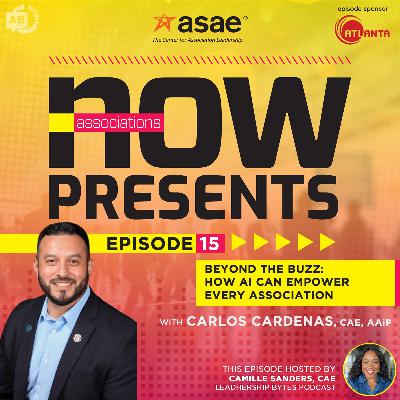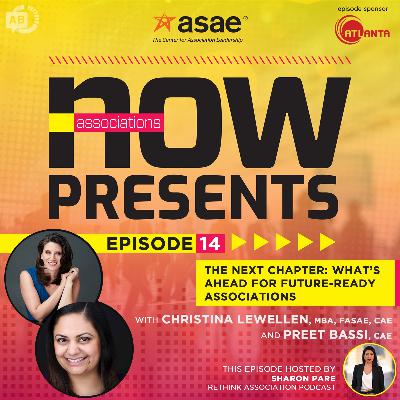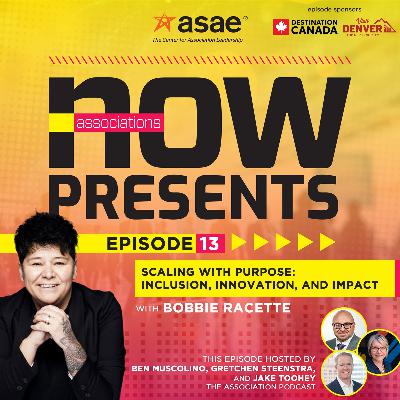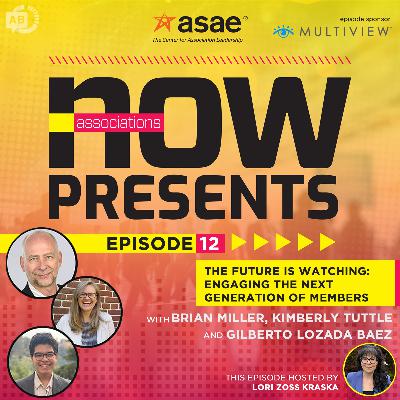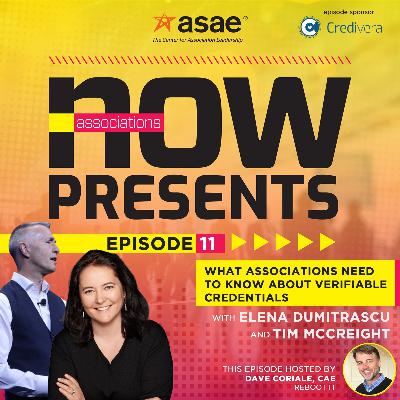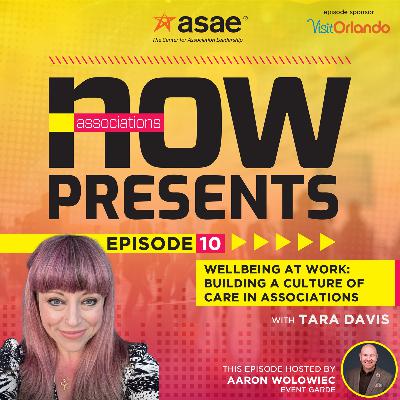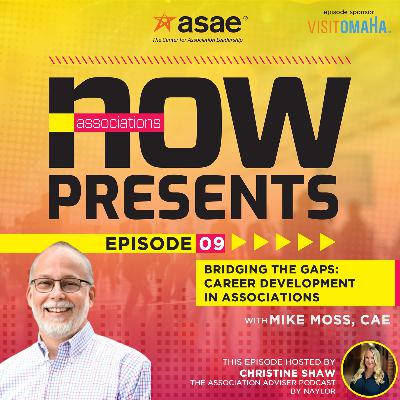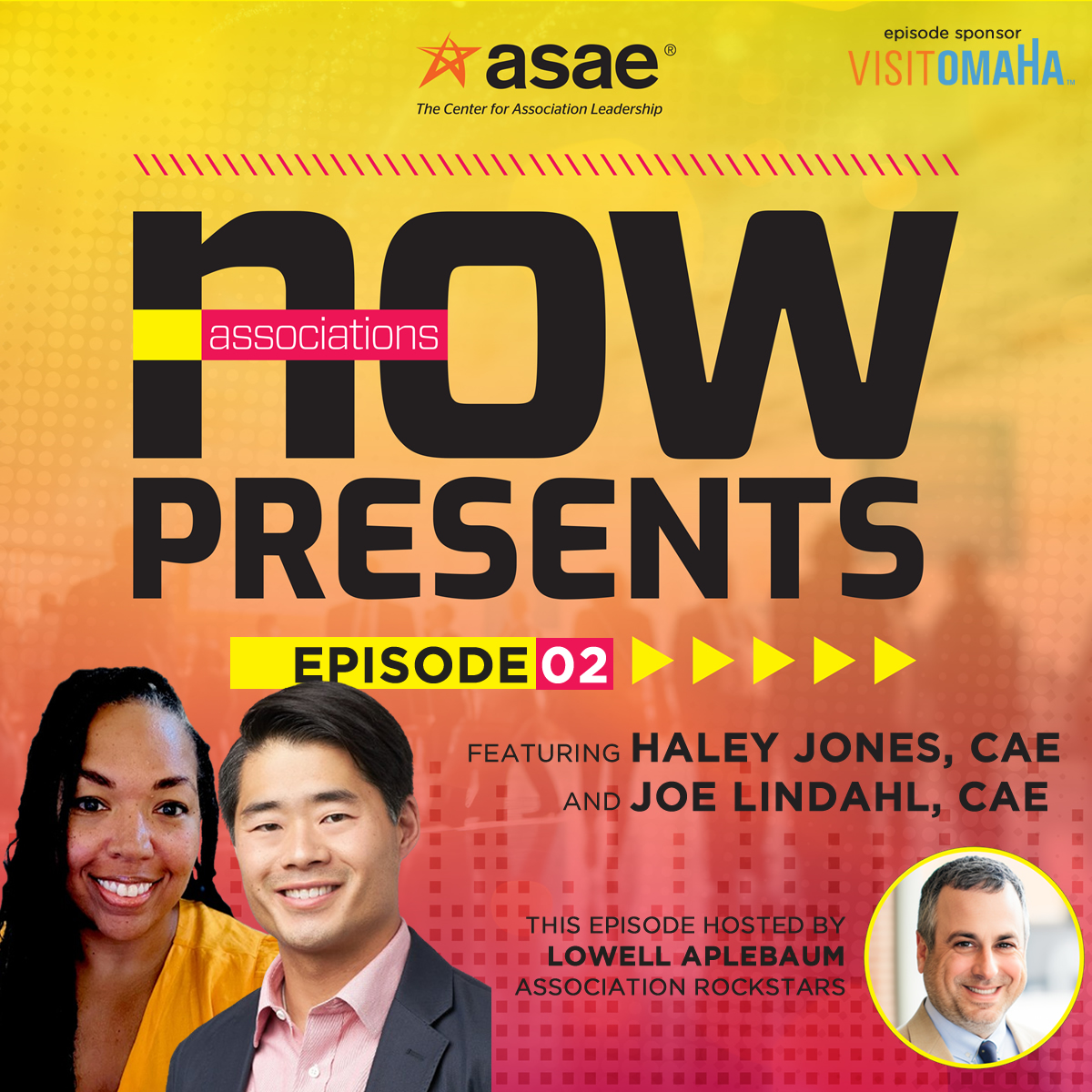Navigating Tax Reform: Advocacy for Associations and Nonprofits
Description
In this episode of Associations NOW Presents, guest hosts Steven Stout, CAE, FASAE, and Katy Markert from Better By Association lead a timely discussion with Mary Kate Cunningham, CAE, Chief Public and Governance Officer at ASAE, and Jarrod Clabaugh, CAE, President and CEO of the Ohio Society of Association Professionals. They explore the potential impacts of upcoming tax reforms on associations and nonprofits, including the expiration of the 2017 Jobs Act provisions and new threats under UBIT. The conversation emphasizes the critical role of coalition-building, advocacy, and grassroots efforts to protect the sector. They also discuss strategies for engaging lawmakers and preview ASAE's upcoming fly-in event, focused on lobbying against adverse tax policies.
Check out the video podcast here:
https://youtu.be/3gSTzeScv7Q
Associations NOW Presents is produced by Association Briefings.
Transcript
Steven Stout 0:04
Welcome everyone to Associations NOW Presents, an original podcast produced by the American Society of Association Executives. Today, sitting in front of the mic is myself, Steven Stout with the Texas Society of Association Executives, alongside my colleague and friend Katy Markert, who will be serving as your guest co-hosts for today's episode.
Katy Markert 0:22
Hi everyone. I'm Katy Markert, also with TSAE, and we are so thrilled to be here with you today. Usually, Steven and I are on our own podcast, as he mentioned, Better by Association, produced by TSAE. And on our podcast, we refer to our listeners as "100-Percenters," because, as you probably know, association executives give 100% of themselves all the time. So you might hear us refer to that today. And I want everyone to know.
Steven Stout 0:49
Absolutely. So all those listeners hearing us for the first time, welcome to the 100- Percenter family. And for those who found us here from our other podcast, welcome back.
Katy Markert 0:58
Welcome back. Normally, I know we're used to speaking to what we think is just Texans, but I'm really excited that this is a national stage Steven.
Steven Stout 1:07
Agreed. We sometimes have listeners in Australia, China and the Netherlands. So being here makes total sense. Were you nervous about being here today Katy?
Katy Markert 1:16
What's funny is I wasn't until I heard that we were going to be on camera, and then all of a sudden, I got a little bit nervous, but usually we don't do that, but I don't mind. I'm just pretending that's not happening. And I don't know. I think after this, we've completed two seasons of our podcast, and I think I started off a little more nervous, but the more we've done in it, the more I realized we just have really great conversations, and I always learn something. And it's really lowered that kind of nervousness level for me. I really don't think about it too much, but what about you? I don't know. I'm starting. I'm getting the vibe that maybe you're you feel opposite.
Steven Stout 1:51
Yeah, I was a little nervous. No, to be honest with you, I changed my shirt three times. I did the teenager thing in the closet, like I went through things and was like, "I have nothing to wear. I hate all my clothes." I was nervous. But now we think you said we've done this so much that it it feels like home when we get to do stuff like this. But the point of all this is that we are happy to be with you today, and thanks for having us.
Katy Markert 2:11
Yes, absolutely. Now, Steven, we are recording this the second week of December, right before the holidays in 2024 and we all just came out of Thanksgiving with our families and loved ones. Yes, and typically, at Thanksgiving, I just, I love my family. I just want to say that about how to say there is that one question that I get a little nervous is going to come up. Do you know the question I'm talking about?
Steven Stout 2:37
Why can't you be more like your sister, Sharon? Is that the one?
Katy Markert 2:43
It probably should be. But no, the question I'm thinking of has a lot more to do with politics, as we know should never bring that up in the holidays, and in particular this year, I was worried about the who did you vote for question?
Steven Stout 2:55
Oh yeah, that is a sticky one at family gatherings.
Katy Markert 2:58
It can be now, perhaps we can sidestep that question here, but there are some more important issues tied to politics that we should all be keeping a close eye on in the association space, no matter who you voted for.
Steven Stout 3:10
That's right. And today we are diving into one of those topics, and that is tax reform.
Katy Markert 3:15
That's right. And luckily, we get to ask the questions and not answer them, because this is actually going to be complex in 2025 today, we are speaking with Mary Kate Cunningham, CAE, Chief Public and Governance Officer with ASAE.
Steven Stout 3:29
Alongside my colleague and bestie from Ohio, Jared Clabaugh, CAE, president and CEO with the Ohio Society of Association Professionals. Welcome guys.
Mary Kate Cunningham 3:40
Thanks for having us.
Steven Stout 3:41
Yeah, thanks for joining us today as we guest co host this podcast. Now, on our podcast, we always ask the same question to our guests, and we're taking the opportunity the same here. So our first question, it's an easy one, I promise. What is your fall-in story? How did you fall into the industry? As we all know, a lot of us did not go to school for this. We found this industry and fell in love with it and stayed so we'd love to hear your fallen stories and how you came across our space.
Mary Kate Cunningham 4:07
I can share that I worked on the Hill, and then I was at a think tank and struggling with kind of the lack of action sometimes that you have at think tanks. And my roommate from college, Beth Palmisano, worked in marketing at ASAE, and that is how I found ASAE, 12 and a half years ago.
Steven Stout 4:22
Oh my gosh, wow. So you have your college roommate to thank for all this.
Mary Kate Cunningham 4:26
Absolutely, yes.
Steven Stout 4:27
I'm not sure I've ever thanked my college roommate for anything. So that's nice that your college roommate did something nice for you. And Jared, what about you?
Jarrod Clabaugh 4:34
A buddy of mine actually worked for a newspaper here in Columbus, and he heard about a job offering with the Ohio Restaurant Association. They were looking for a communications director. In my life, I've only eaten in restaurants, never worked in one. So I thought, "What could I bring to that role? "And another college friend said to me, it's basically a PR job for an association, and that was almost 15 years ago, and that led to service on the Ohio Society of Association Professionals board, which led to me running the show here nine years later.
Steven Stout 5:07
So you both have your college roommates to thank for your introduction to the space.
Jarrod Clabaugh 5:11
Mine is a fellow RA and I'm not sure if he made the offer to help me out or to just give me a different perspective on going from real estate to something as sexy and as exciting as association management.
Katy Markert 5:24
That's wonderful. We love that you guys made it into this industry, and we get to talk to you today. Now that we've got the softball question out of the way, it's time to get into what we're here to talk about. I just want to dive right in. So how will the expiration of the 2017 Jobs Act provision impact associations, particularly concerning UBIT compliance and potential new tax liabilities.
Steven Stout 5:48
A real soft want to get us started.
Jarrod Clabaugh 5:50
Yeah, speaking of those sexy questions, yeah.
Katy Markert 5:55
Mary Kate, can you kick us off?
Mary Kate Cunningham 5:57
Sure, yeah. So I'm happy to talk about how much is at stake next year and why associations need to be at the table. There are a few bills that have major provisions that are expiring and well, the tax cuts and Jobs Act is one of them. There is, let's see, almost 10 trillion in proposed policies on the table, but there are a huge number of tax exemptions that are expiring at the end of next year. So that's why Congress has to act. We say Congress only acts when there's a deadline, and sometimes not even when there's a deadline, and this is going to be next year, the Super Bowl of tax there is the individual rates and the corporate rates that may change. And Congress is looking for a lot of revenue, and they're looking in every sector and profession, and that's why we're really concerned about the assistance community and not being a pay for this type of legislation.
Steven Stout 6:47
And then why did they suddenly start focusing on associations, or the 501, C community? I should say
Mary Kate Cunningham 6:54
So, there was two tax policy reports that came out in the summer, one from the Tax Foundation and one from Cato, and they are listing out all the different ways that associations are exempt, and they're advocating for taxing the entire 501, C community at the corporate rate. So it is really concerning. One is Tax Foundation, and one is from Cato, and we knew we were going to be prepared for a tax site next year, along with everyone else, but we didn't know that we were going to be specifically targeted to really have all non donation revenue be taxed at the corporate rate, which is right now, 21% that could


